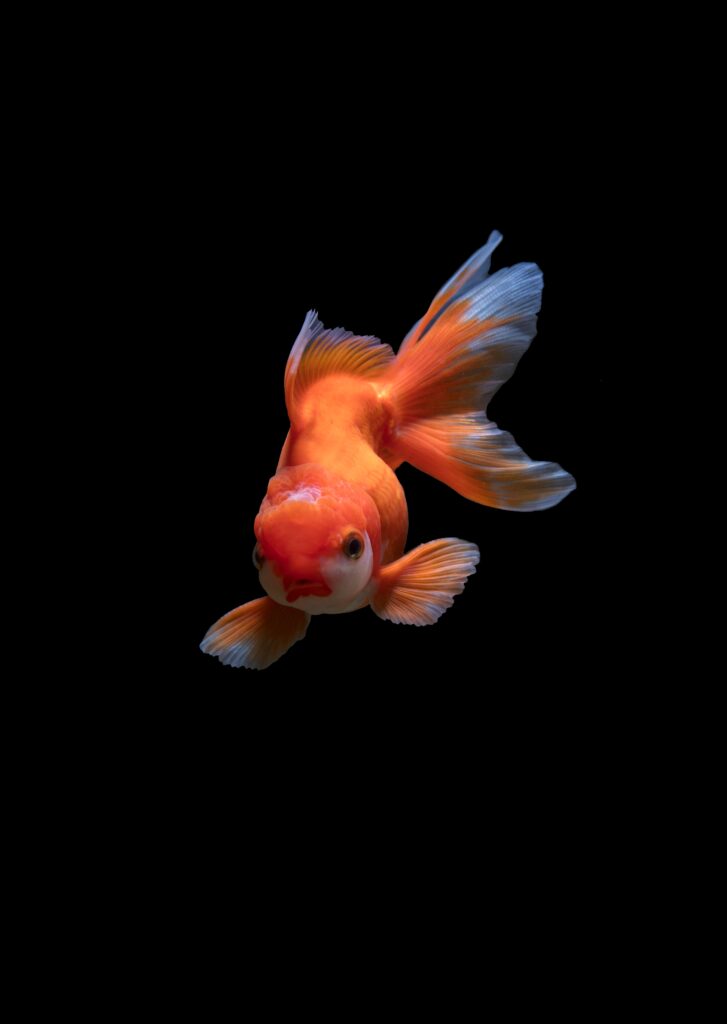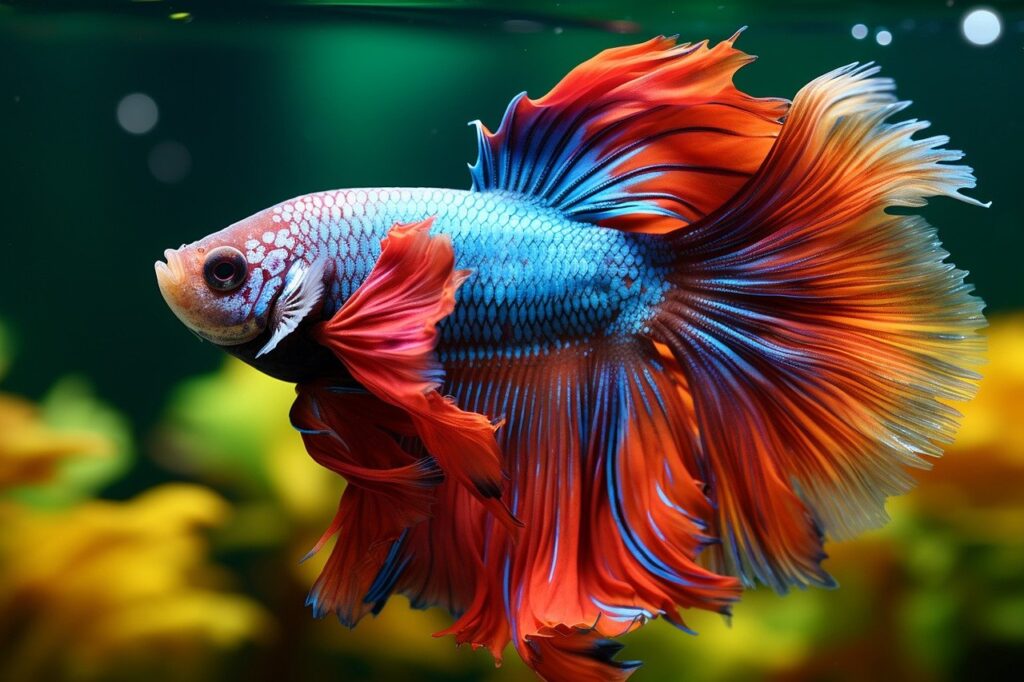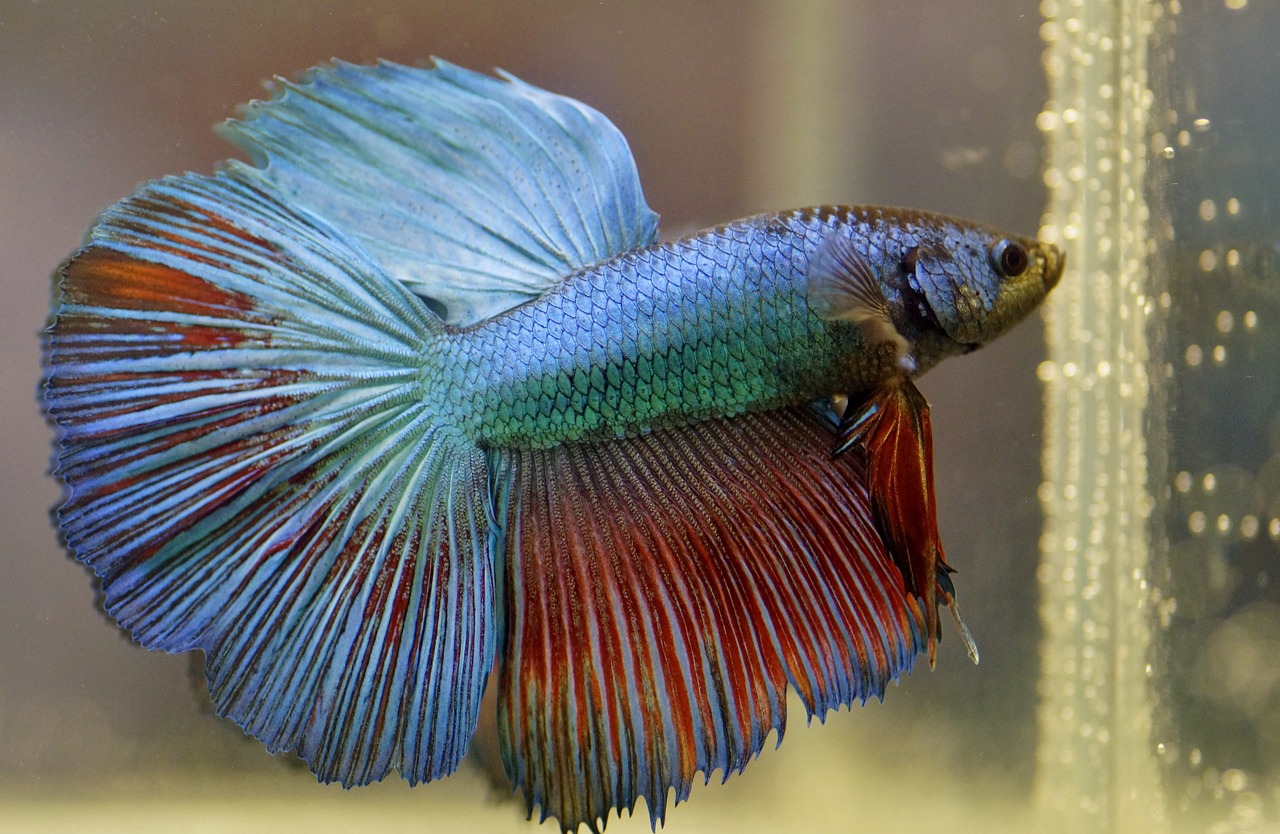Hello, fellow aqua-adventurers! 🌊 So, you’ve got this burning question: Can a betta fish eat goldfish food? I get it!
Imagine you’ve just returned from the pet store, bags in hand. One bag gently cradles your new Betta fish, its vibrant colors already promising to be the centerpiece of your living room.
The other bag? It’s brimming with goldfish food because, well, let’s say someone might’ve forgotten to stock up on Betta food.
Now, a hungry Betta is giving you the side-eye and a mound of goldfish flakes is beckoning from the corner. You’re stuck in this underwater conundrum!
Before you dash to the store or start sprinkling goldfish grub into your Betta’s tank, hang tight. We’re about to plunge into the depths of this question and come out with a clear answer.
Dive in with me, and let’s ensure our finned friends get the royal treatment they deserve!
Comparing The Dietary Needs
Ahoy, aqua-buddies! As we journey into the realm of fishy diets, we must understand that not all fish are created equal – at least, not when it comes to their food plates. Let’s get our fins wet and splash into the unique dietary needs of both Betta and Goldfish.
- Betta Fish Dietary Needs
- Carnivorous by Nature: Yep, that’s right! These little fighters are meat lovers. Bettas typically munch on small insects, larvae, and even tiny crustaceans in the wild. A high-protein diet keeps them energetic and maintains those vibrant colors we all adore.
- Specific Nutrients and Their Benefits: Omega-3 and Omega-6 fatty acids are top of the list. These keep your Betta’s energy levels up and ensure that their scales stay shimmering and beautiful. Then, there are amino acids, which help in tissue regeneration – pretty crucial if you’ve ever seen how feisty Bettas can get!
- Goldfish Dietary Needs
- Omnivorous: Unlike our Betta buddies, Goldfish are a tad less picky. They enjoy a mix of proteins, vegetables, and grains. Think of them as the laid-back friend always up for a potluck dinner.
- Essential Nutrients and Their Benefits: Goldfish need a balanced diet. Vitamins like A, C, D, E, and K are vital in their overall health, from bone development to immune system boosting. Minerals such as iodine and magnesium are crucial, too. And remember fibers! They ensure our gold-scaled friends have a smooth digestive journey.
We can already spot some differences by just looking at these needs. Our Betta loves its protein-rich menu, while the Goldfish is about a balanced life. But what happens if we cross streams and consider feeding goldfish food to a Betta? Stick around, and we’ll dive deeper!
Components of Goldfish Food
Before we can truly answer the big question – can a betta fish eat goldfish food? – We need to know what’s actually in that goldfish grub. Let’s break it down, ingredient by ingredient, so you’re not swimming in the dark.
- Main Ingredients
- Proteins: Goldfish foods often contain fish meal, shrimp meal, and sometimes even soybean meal. These serve as the primary protein sources. Remember, Goldfish are omnivores, so their protein intake doesn’t need to be as high as our carnivorous Betta pals.
- Carbohydrates: These often come in the form of wheat germ, cornmeal, and other grains. Carbs offer Goldfish the energy they need to swim around and do their charming goldfish things.
- Vegetables: Goldfish food can have components of spirulina, alfalfa, and other veggie sources. These provide essential vitamins and minerals.
- Nutritional Content & Breakdown
- Fats: These are crucial for overall energy and health. Goldfish food often contains essential fatty acids, but not as much as our carnivorous Betta might need.
- Vitamins & Minerals: We’re talking about a range of essential vitamins like A, C, D, E, and K. Minerals like calcium, phosphorus, and iron are in the mix too. These all contribute to the overall growth and well-being of Goldfish.
- Fiber: This plays a pivotal role in aiding digestion. Since Goldfish are omnivores with a varied diet, fibers help keep everything running smoothly, ensuring no belly troubles.
So, while goldfish food might seem like a buffet of delightful ingredients at first glance, it’s tailored to a goldfish’s unique dietary needs. But does that mean it’s a total no-go for our Betta? Hold onto your snorkels because we’ll find out in the next section!

Can A Betta Fish Eat Goldfish Food?
Alright, dive buddies, it’s time for the nitty-gritty. 🌊 While goldfish food might seem tempting to toss into your Betta’s tank (especially if you’ve run out of Betta food), there are a few things you need to be aware of. Let’s unravel the possible hazards lurking beneath those golden flakes with some help from Betta Care 101.
Insufficient Protein Content for Bettas The Protein Gap: Remember how Bettas are like those muscleheads at the gym, always looking for their next protein shake? Goldfish food may not pack enough of that protein punch. Feeding them something low in protein might mean our Betta buddies could lose some of that grit we love.
Energy Lows: Less protein can lead to lower energy levels in Bettas. So instead of zipping around, your Betta might laze around – and not in the cool, relaxed way.
Excess Carbohydrates and Fillers The Carb Overload: While Goldfish thrive on a balanced diet, Bettas prefer something other than carbs. Feeding them too many carbohydrates can cause unhealthy weight gain and bloating. Think of it like eating junk food always; it’s fun initially but could be better in the long run.
Digestive Drama: Those fillers that might be A-OK for Goldfish could cause digestive issues in Bettas. In some cases, they might not be able to process them.
Potential for Bloating and Digestive Issues Belly Troubles: Goldfish food, especially flakes or pellets that expand when wet, can cause Bettas to bloat. It’s not fun for the fish and distressing for the fish parent (that’s you!) to witness.
Constipation Concerns: The higher fiber content in goldfish food might not sit well with our carnivorous Betta, leading to constipation. Imagine feeling “stuck” – your Betta might feel that way too.
While these risks might sound a bit doom and gloom, remember, it’s all about ensuring our finned family members get the best! After all, would you want to munch on food that doesn’t suit you? Stay with me as we explore if an occasional goldfish treat is okay and the long-term effects of this fishy dietary crossover!

Occasional Consumption vs. Regular Consumption
Alright, diving right back in! Now, we’ve all had those moments – you’re out of your favorite snack and wonder if that substitute snack sitting in your pantry will do the trick for once. This brings us to an important distinction when feeding our Betta buddies: occasional versus regular goldfish food consumption.
Occasional Consumption: Let’s start with the one-off, “Oops, I ran out of Betta food!” scenario. You might be tempted to give your Betta a pinch of goldfish food here. And guess what? Once in a blue moon might not be catastrophic. It’s akin to us having a cheat meal amidst our regular diet – not ideal, but not the end of the world either. However, there are a few caveats:
- Quantity Matters: If you’re considering this, ensure it’s small. You want your Betta balanced with carbs and fibers suited for its diet.
- Monitor Your Betta: Watch for any signs of discomfort or bloating. This will show you if your Betta is okay with the occasional goldfish food treat.
- Return to Regular Diet ASAP: The key word here is “occasional.” Once you can, get your Betta back on its typical high-protein diet.
Regular Consumption: Now, if you’re thinking of making goldfish food a staple in your Betta’s diet, it’s time to reconsider. Continuous consumption of goldfish food can lead to a series of health issues for Bettas:
- Nutritional Deficiencies: Over time, your Betta might lack essential nutrients, particularly protein, weakening immunity, and less vibrancy.
- Digestive Troubles: Regular high carbs and fiber intake can cause chronic bloating and constipation, making your Betta perpetually uncomfortable.
- Change in Behavior: A poorly nourished Betta could display reduced activity, show diminished interest in food, or become more prone to illnesses because of a compromised immune system.
In the grand scheme of things, it’s like us living off fast food. Sure, a burger and fries might be delightful occasionally, but if that’s all we eat daily, we’re bound for some health troubles.
In conclusion, while the occasional pinch of goldfish food won’t spell disaster for your Betta, regular consumption is a big no-no. It’s always best to stick to the diet tailored specifically for them. After all, we want our Betta buddies swimming strong, shining bright, and feeling right!
Alternatives and Solutions
Let’s navigate the waters of the “What to do when you’re out of Betta food” situation. Whether it’s a shipping delay, a pet store mix-up, or a simple oversight, sometimes you find yourself in a pinch. But before you reach for that goldfish food as a regular stand-in, let’s explore some alternatives and solutions for our Betta buddies.
Homemade Betta Treats: Surprisingly, making a treat for your Betta is pretty easy, and you might have some ingredients right in your kitchen!
- Frozen Peas: A blanched, deshelled pea broken into tiny bits can be an occasional treat. It acts as a laxative, helping with digestion, and it’s also a fun snack for your Betta.
- Live or Frozen Foods: Brine shrimp, bloodworms, and daphnia can be bought frozen from many pet stores and are excellent protein-rich treats for Bettas.
Temporary Substitutes: If you can’t immediately get Betta-specific food, consider these alternatives:
- Tropical Fish Flakes or Pellets: While not a perfect match, tropical fish foods are often closer in composition to Betta food than goldfish food.
- High-Protein Alternatives: Look for fish foods with a higher protein content that align more with Betta’s dietary needs.
Stocking Strategies:
- Buy in Bulk: Consider buying Betta food in bulk and storing it appropriately. This way, you’re likely to stay put.
- Set Reminders: Whether it’s a note on your fridge or an alert on your phone, a simple reminder can prevent those “Oops, out of Betta food!” moments.
Emergency Pet Store Visits: It might sound dramatic, but a quick trip to the nearest pet store is worth it if you’re out of food and can’t find an immediate alternative. Your Betta’s health and well-being are paramount.
Educate & Share: If you have a community of fish enthusiasts or friends with Bettas, share knowledge and perhaps even food in emergencies. Pooling resources can be a lifesaver. You never know when you might be the one needing a quick fish food favor or when you can extend a helping hand.
In a fishbowl, variety might be the spice of life. Still, ensuring that any variation aligns with our Betta’s dietary needs is essential. With some planning, creativity, and resourcefulness, we can ensure that our aquatic amigos take advantage of the nutritious meals they deserve.
Conclusion:
Navigating the intricate waters of Betta fish care requires knowledge, intuition, and a touch of aquatic love. By now, you’ve unraveled whether a Betta can chomp down on goldfish food, and more importantly, should they?
While both Bettas and Goldfish are popular in our home aquariums, their dietary needs are as distinct as their personalities. Bettas, with their flamboyant fins and carnivorous cravings, deserve a protein-rich diet that caters to their unique needs. Although packed with nutrients for our golden swimmers, Goldfish food doesn’t fit the bill for our Betta buddies.
Temporary alternatives, thoughtful planning, and engaging with fellow fish enthusiasts can guide us through those occasional food hiccups. Ultimately, it’s all about ensuring our friends live their most vibrant and healthy lives.
So, the next time you see those shimmering flakes or pellets meant for Goldfish, remember they’re best left for the goldies. For our Betta pals, let’s commit to offering them the nourishment they truly deserve. After all, a well-fed Betta is a happy Betta, and isn’t that the splash of joy we all seek?
